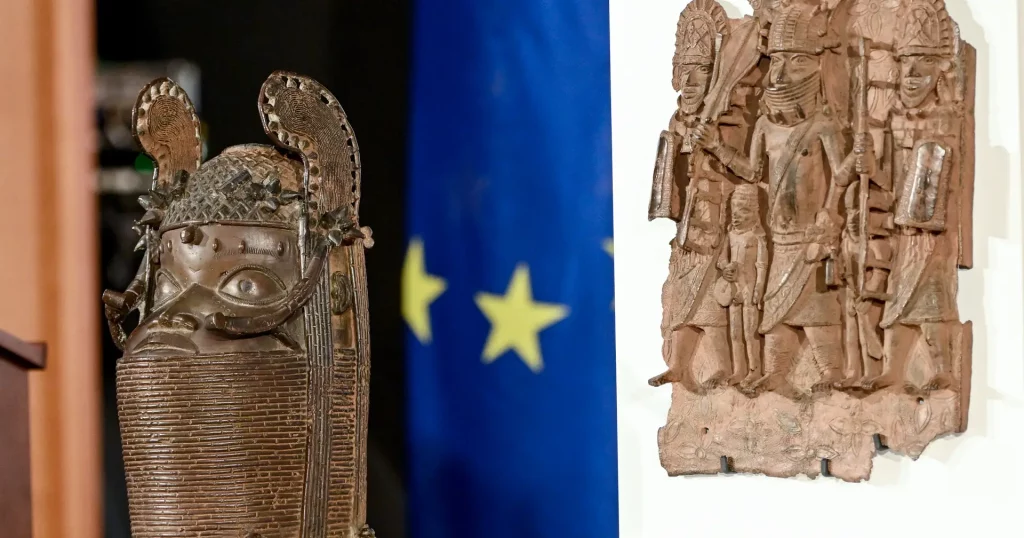The works and objects include 12 brass plates known as the “Benin Bronzes”, as well as ritual objects made of ivory and brass, everyday items such as fans and baskets, and a key to the “king’s palace”.
Nigeria’s National Commission of Museums and Monuments responded to a request in January to return the pieces, whose director-general Abba Dijani has already welcomed the London institution’s decision.
“The evidence that these objects were obtained by force was very clear and confirmed our view that it was moral and appropriate to return their property to Nigeria through external consultation,” said Eve Solomon, head of museum management.
The British Museum will now discuss with the Nigerian Commission the formal process of transfer of ownership and the possibility of some objects being on loan, for exhibition or research or teaching purposes.
The Horniman Museum’s collection is a small part of the 3,000 to 5,000 artefacts taken from the Kingdom of Benin in 1897, when British soldiers attacked and occupied the city of Benin, south of the Nigerian state of Edo, as the United Kingdom expanded its political and commercial influence in West Africa.
The British Museum has more than 900 items from Benin, and the Scottish Museum has 74. Other pieces have been distributed to museums around the world.
Nigeria has negotiated with several European countries to return the Benin bronzes and plans to build a museum in Benin City to house them.
In November, France returned to Benin, Nigeria’s neighbor, 26 pieces belonging to the royal treasures of Abomey (South), looted by French colonial troops in 1892.
Earlier this year, England returned a bronze rooster and a king’s head to Nigeria.
Several countries, including Nigeria, Egypt and Greece, as well as indigenous peoples from North America to Australia, are increasingly demanding the return of artefacts and human remains as part of a global inquiry into colonial history and exploitation of indigenous peoples.
For example, Greece claimed the friezes of the Parthenon in Athens, which are on display at the British Museum in London, from the United Kingdom for decades. The museum has recently expressed its openness to an agreement to share them with Athens.

“Internet evangelist. Writer. Hardcore alcoholaholic. Tv lover. Extreme reader. Coffee junkie. Falls down a lot.”



:strip_icc()/i.s3.glbimg.com/v1/AUTH_59edd422c0c84a879bd37670ae4f538a/internal_photos/bs/2024/B/z/cQGmlCQ8enEi6a4aMy3A/2024-04-20t192308z-405666584-rc2ja7aop8ei-rtrmadp-3-usa-congress-ukraine.jpg)


More Stories
TikTok ban in US filed in Senate
Startup promises to speed up US visas with AI
Rwanda – UK Approves Law to Deport Migrants to Prime Time Zone